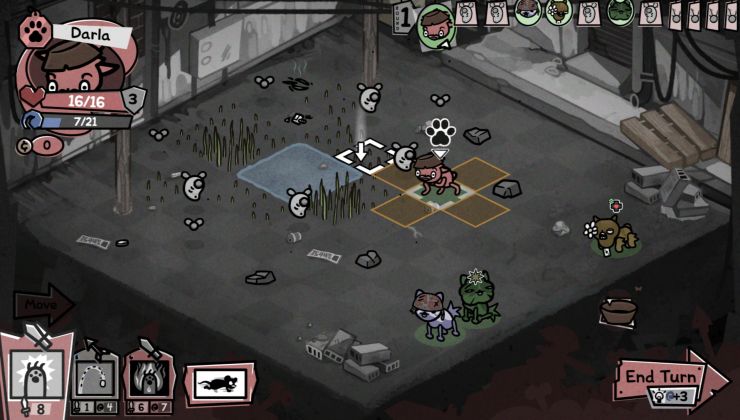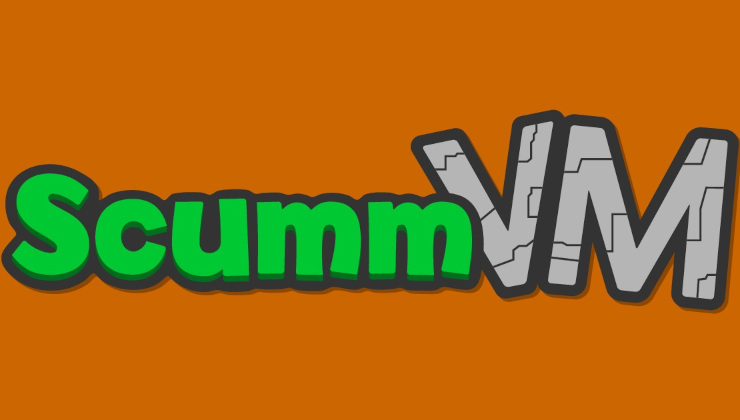Canonical developers continue working towards Ubuntu 24.10, the next release of the popular Linux distribution, and thankfully more fixes are coming for the Steam Snap package.
Mentioned in an update in the Ubuntu Discourse forum, Oliver Smith who is the Interim Engineering Director for Ubuntu Desktop, talked about issues with Snap + NVIDIA + Steam. The team has worked on a "more permissive AppArmor profile" for the Steam Snap package to "grant broader permissions to the snap" and that this "looks to resolve a majority of outstanding game compatibility issues that were not present in the Steam deb".
So hopefully, this will mean the Steam Snap package, that Canonical promoted from experimental to stable, will actually be properly usable soon.
It was also mentioned how they found issues with the NVIDIA 550 driver, which have been fixed. Thankfully that's coming sooner rather than later with a newer version of snapd that will arrive before Ubuntu 24.04.1 LTS. Additionally there's some better testing in place now for future driver updates.
Thanks to all this they "expect a significant improvement in the quality of compatibility of the Steam snap".
Also, if you're looking for a job, Canonical are again hiring for more Desktop Software Engineers.
Ubuntu 24.04.1 LTS is due out on August 29th.
Honestly, after having spent at least the last 10 years on Ubuntu, I'm actually contemplating switching to something else instead of upgrading to 24.04.1. And the main reason is Snap. I understand that there's the need for 3rd parties to package "universal" Linux binaries, and I don't think it's bad that there are several choices for that, including Snap. But why would the maker of the distro go that route, especially if it goes hand in hand with a degradation of the user experience!?
Quoting: kaimanAnd the main reason is Snap.?Oh geez come on! :grin:
It was also mentioned how they found issues with the NVIDIA 550 driver, which have been fixed.I that why the NVIDIA 550 driver is not yet available for Ubuntu 22.04 LTS?
Quoting: kaimanCanonical seems to be quite infected by the "not invented here" syndrome.This has been proven a false claim so many times but still ppl try to use it against Ubuntu or whatever.
Unity was a huge step forward for Linux desktop when introduced. To this day a lot of people want it back, after a loud minority shat on it for years.
Now they try the same towards GNOME it seems. Some people have some kind of need to hate? If only these people used what they prefer and would leave others alone? It also does not look good for new comers to arrive in the middle of technical flame wars :huh:
MIR? Result of inability to reason with Wayland guys and Snap was created before Flatpak. Snapd have much wider feature list. Flatpak is merely a fracture of what Snaps are capable of.
Quoting: kaimanHonestly, after having spent at least the last 10 years on Ubuntu, I'm actually contemplating switching to something else instead of upgrading to 24.04.1. And the main reason is Snap.Can't resist a plug for Mint then. Like Ubuntu, but better, and doesn't use Snap. Unless you're a KDE person because Mint doesn't really do KDE.
Quoting: dziadulewiczI think there is a real beef to be made about the way Canonical operates with respect to the open source ecosystem, although "not invented here" isn't exactly, or mostly, it. People reach for that because it's kind of close and there isn't really a term for what Canonical does.Quoting: kaimanCanonical seems to be quite infected by the "not invented here" syndrome.This has been proven a false claim so many times but still ppl try to use it against Ubuntu or whatever.
The thing is that Canonical typically seems to control their open source projects very tightly, making it difficult for anyone else to get involved, contribute, have influence or in some cases even use the stuff they're making. There's nothing about them that's not technically open source, but if you want to add a feature that isn't part of Canonical's road map, you're gonna have to fork it, and I seem to recall they insist on contributors handing over copyright and stuff. So then nobody outside Canonical contributes and it makes the projects not as good and reduces mindshare.
And it tends to make people forget that the Canonical project was first (in cases where it was), because it didn't have a community so nobody noticed it much before they actually released it for general use or got into some kind of difficulty with whatever other project was doing the same stuff.
Quoting: dziadulewiczOh geez come on!I'm pretty sure there are plenty of advantages that snaps or flatpaks have over traditional packages, but what I notice is mostly how clunky things are:
- Want to update your browser while it's running? Tough luck! (Never noticed that issue with the .debs.)
- Want to use extensions with a native component? Finally can do that again! (Took only two years to sort it out.)
- Want the snap store to update itself? Again, tough luck! (Can be done from the command line.)
And that's on a system that only has 10 snaps, I really dread the day when that number increases. Though maybe a do-release-upgrade will be safe for now ...
Quoting: dziadulewiczUnity was a huge step forward for Linux desktop when introduced. To this day a lot of people want it backMe included. But as it's not returning, that's one less reason to remain on Ubuntu.
Don't get me wrong, there's plenty of stuff to like about Ubuntu, otherwise I would not have stuck to it for such a long time. But if something keeps nagging me constantly, maybe it's time to look for alternatives. If I had not done that in the past, I might still be using Windows or macOS after all ...
Quoting: kaiman- Want to update your browser while it's running? Tough luck! (Never noticed that issue with the .debs.)I'm going to have to beg to differ on this one, at least with regard to Firefox.
Also, as someone who has never really used Snaps, I've never seen this behavior happen with Flatpak.
Quoting: kaiman- Want the snap store to update itself? Again, tough luck! (Can be done from the command line.)I think they've finally fixed that. That really annoyed me too.
Quoting: kaiman- Want to use extensions with a native component? Finally can do that again! (Took only two years to sort it out.)I don't understand this one—extensions for what?
---
I'm looking forward to an Atomic Ubuntu comprised entirely of Snaps. That might be a reason for me to come back to the distribution one day. The potential for a completely Snappy Ubuntu is beyond a completely Flat Fedora given the current state of Flatpaks and Snaps. Silverblue is a kind of clunky experience where you need to know what you're doing and how parts of the system interact, and I'm sorry for saying this, but I really think Toolbx is a kludge. With a Snapified Ubuntu, CLI tools are first-class citizens and you can even get development toolchains in Snap: https://users.rust-lang.org/t/rust-as-a-snap-package-for-several-linux-distributions/13463
That has the potential to be a really user-friendly and unified experience. You can interact with Snap packages using Apt so you don't even need to learn another tool. The downsides, as we've seen, seem to be compatibility issues like with Steam. As we've seen with the Steam snap, these issues will go away over time.
Many big developers like Jetbrains and Microsoft decide to use Snapcraft to distribute their applications on Linux. I can only imagine this will get bigger over time. This isn't a loss for Flatpak because Snaps can be unraveled and re-packaged as Flatpaks too.
And if they could upstream the kernel patches for Snaps so they're properly compatible/secure on all distributions, that would be great! This is the primary reason I don't use Snaps; I don't use Ubuntu with a patched kernel. If the patch series gets upstreamed, then I could have a real opinion on Snaps.
Just to add some more dissent to this thread :tongue:
I ditched Ubuntu right then and there. Similar issues have cropped up over the years but that's the only time I've run into something purposefully locked down.
Whether or not Canonical has a "Not invented here" issue, there is a history of the community going one way followed by Canonical doing their own version.
Canonical could have kept going with Gnome, branding bits of it for their fork and such. Nope - Unity - Now ditched.
Canonical could have kept going with Wayland as the X server replacement. Nope - Mir - Now ditched.
Dash, Upstart - Same thing.
Canonical could have made snap universal when it came out. Nope - Initially bound to Ubuntu. I can't seem to find a definitive "Snap was announced/started at <somedate>" but it at least looks to have started about the same time as Flatpak and wasn't updated for use by other distro's until 2016 - A year after Flatpak released. Snap is still going, but if they had released it initially for all/any distro, would Flatpak have been needed?
Honestly, I think Canonical/Ubuntu were at least partially responsible for getting Linux where it is now. However, IMHO, they wanted more control over things than the Linux ecosystem would tolerate.
Quoting: BeemerCanonical could have made snap universal when it came out. Nope - Initially bound to Ubuntu. I can't seem to find a definitive "Snap was announced/started at <somedate>" but it at least looks to have started about the same time as Flatpak and wasn't updated for use by other distro's until 2016 - A year after Flatpak released. Snap is still going, but if they had released it initially for all/any distro, would Flatpak have been needed?I'm a little fuzzy on the details here.
My understanding is that Snap requires kernel patches mainly related to AppArmor. Even without those patches, the new Snap confinement (there are two versions IIRC) will work on all distributions but it's not very secure.
Canonical has been trying to upstream those patches for a few years now. That's the issue with cross-distro compatibility, right?
Quoting: kaimanWant to update your browser while it's running?
Quoting: pleasereadthemanualAlso, as someone who has never really used Snaps, I've never seen this behavior happen with Flatpak.Iirc I've read that if you update a flatpak app while it's running, there is a guarantee that the running app will not actually see any changes and they're only really applied on restart. So it's safe to update firefox for instance, while updating a native package will cause new firefox tabs to start crashing, at least sometimes.
Generally I've had very little issues with flatpak for a couple of years of running Silverblue but also on any random systems, while my recent VM experiments with Ubuntu have been pretty weird. Broken appstore self-updates are still there on fresh install, but maybe 24.04.1 will actually fix that. Flatpak also adds some intersting features, for instance if you want to play a game with bleeding edge drivers in case they happen to include some fix for a game you're trying to play, you can run stable Steam flatpak with mesa-git flatpak, and it's way safer and easier than actually installing mesa-git on your system.
Quoting: rustynailIirc I've read that if you update a flatpak app while it's running, there is a guarantee that the running app will not actually see any changes and they're only really applied on restart. So it's safe to update firefox for instance, while updating a native package will cause new firefox tabs to start crashing, at least sometimes.Yeah, that makes sense. Each Firefox update is an entirely new commit with a new sandbox.
So technically Flatpak guarantees fewer disruptions than native Firefox!
Quoting: rustynailmy recent VM experiments with Ubuntu have been pretty weird. Broken appstore self-updates are still there on fresh install, but maybe 24.04.1 will actually fix that.I have honestly never had a good experience with Ubuntu. I tried to install 23.10 on hardware and the installer just failed the first time and I needed to start again. And I couldn't install updates in Jammy Jellyfish.
But in principle, Snap and Ubuntu have potential.
Quoting: rustynailFlatpak also adds some intersting features, for instance if you want to play a game with bleeding edge drivers in case they happen to include some fix for a game you're trying to play, you can run stable Steam flatpak with mesa-git flatpak, and it's way safer and easier than actually installing mesa-git on your system.Yeah, this is great. Codecs too. I assume you could do the same in Snap.
Quoting: kaimanBut why would the maker of the distro go that route, especially if it goes hand in hand with a degradation of the user experience!?You know who else does this but doesn't get a bad rap for it? NixOS.
Quoting: BeemerI can't seem to find a definitive "Snap was announced/started at <somedate>"It wasn't "snap" at the start. It was "click" for the Ubuntu Phone in 2013, then "snappy" for containers and IoT around 2014/2015, then became "snap" at some point after - potentially around the time it was made available on other distros.









 How to setup OpenMW for modern Morrowind on Linux / SteamOS and Steam Deck
How to setup OpenMW for modern Morrowind on Linux / SteamOS and Steam Deck How to install Hollow Knight: Silksong mods on Linux, SteamOS and Steam Deck
How to install Hollow Knight: Silksong mods on Linux, SteamOS and Steam Deck